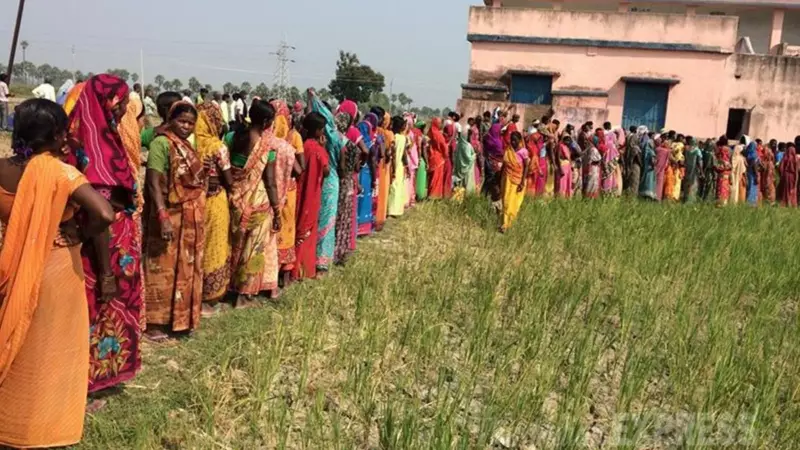
In what appears to be a political paradox, Bihar stands at the forefront of female voter participation while simultaneously lagging in genuine women's political empowerment. The state that proudly showcases rising numbers of women at polling booths continues to grapple with giving them substantive voice in decision-making chambers.
The Voting Revolution That Stopped at the Ballot Box
Recent electoral data reveals a remarkable trend: women in Bihar are voting in unprecedented numbers, often surpassing male turnout figures. This democratic enthusiasm, however, hasn't translated into proportional political representation or influence. The very system that celebrates their voting power seems designed to limit their leadership potential.
The Glass Ceiling in Panchayati Raj
While reservation policies have ensured women's presence in local governance bodies, the reality often tells a different story. Many elected women representatives find themselves functioning as mere proxies, with male relatives pulling the strings from behind the curtain. This "proxy representation" phenomenon undermines the very purpose of political quotas.
Structural Barriers and Social Shackles
The challenges run deeper than mere token representation. Several factors contribute to this political disconnect:
- Educational disparities that limit political awareness and confidence
- Deep-rooted patriarchal norms that question women's leadership capabilities
- Lack of financial independence and campaign resources
- Safety concerns and family restrictions on political activities
- Party machinery dominated by male leadership at decision-making levels
Beyond Symbolic Gestures
Political parties often reduce women's participation to symbolic gestures—fielding candidates from political families or using women as campaign accessories. What's missing is genuine investment in building women's political careers from the ground up.
The Road to Meaningful Participation
Transforming this scenario requires more than just reservation percentages. Essential steps include:
- Comprehensive political education programs for women at grassroots levels
- Mentorship initiatives connecting experienced women leaders with newcomers
- Financial support systems for women candidates without political lineage
- Accountability mechanisms to prevent proxy representation
- Party reforms ensuring women's presence in crucial decision-making committees
The conversation needs to shift from "women voting" to "women leading"—from participation numbers to substantive influence. Until Bihar bridges this gap between ballot power and political voice, the state's democratic story remains incomplete.






